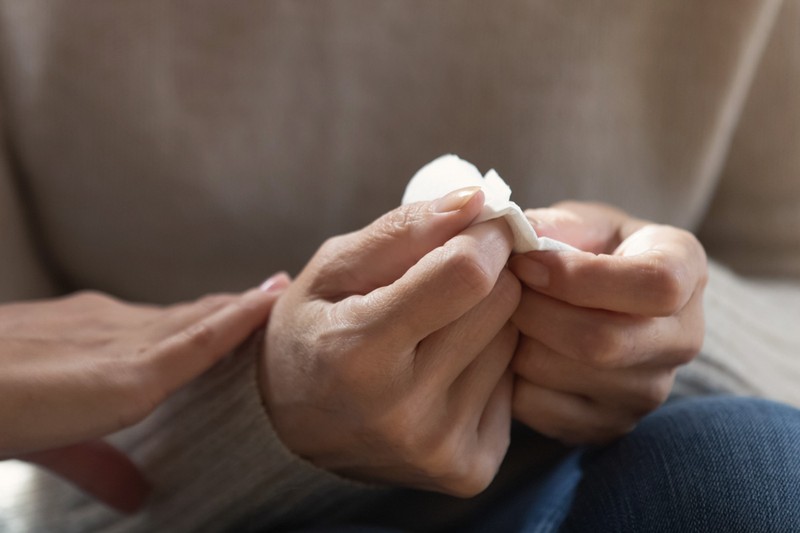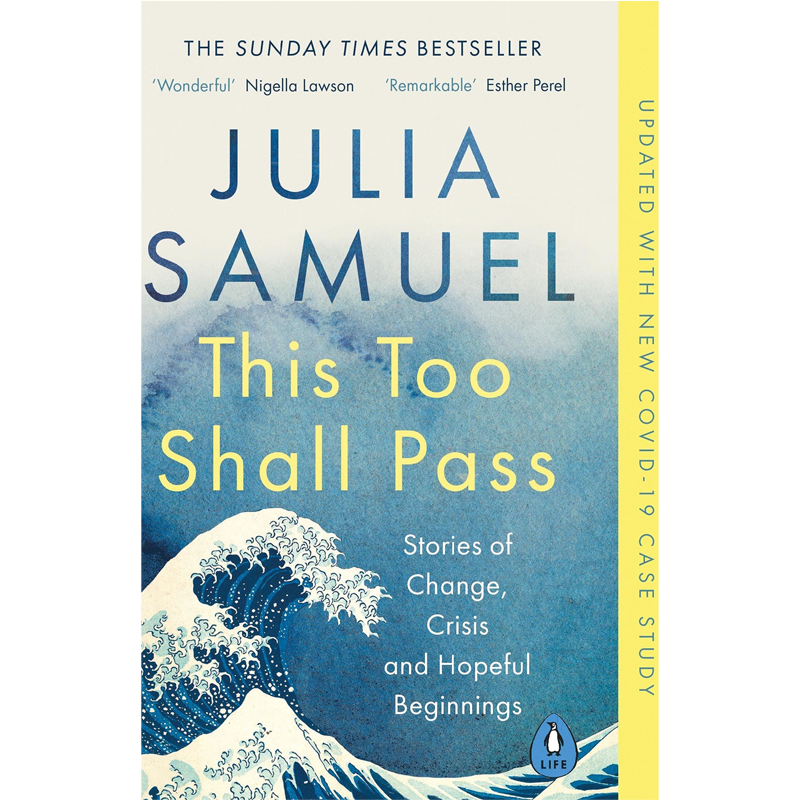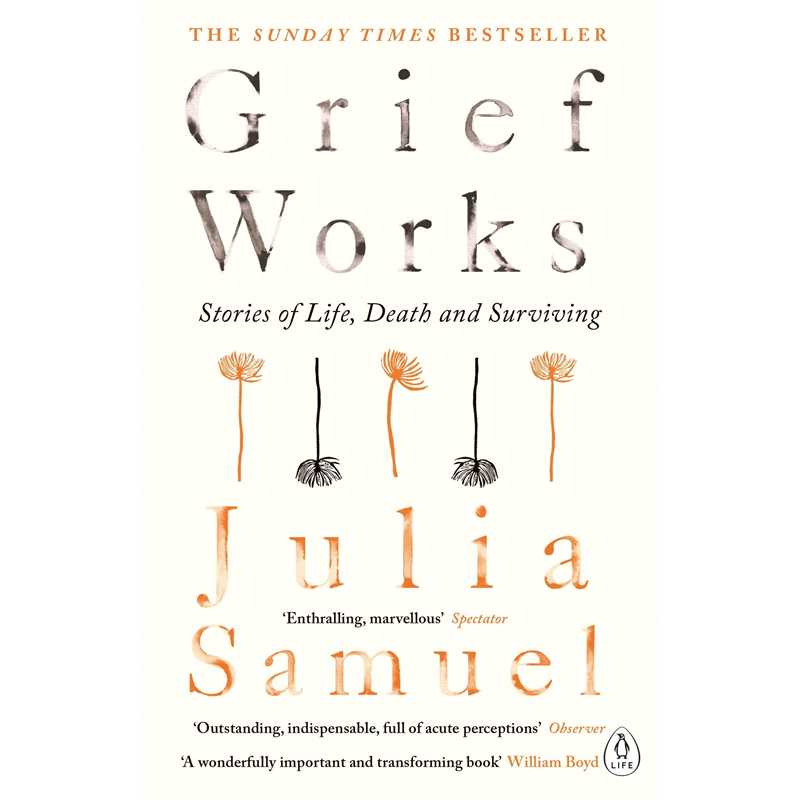
An Honest Conversation About Grief… With Julia Samuel
The love and support of others is crucial for processing grief. For that reason, as you get older, you need to prioritise and invest time in your most important relationships. It’s very easy to give too much time over to careers or this obsession with being productive or your to-do list, but it often means the people closest to us drop to the bottom of the list. In mid-life, it’s so important to invest time in your relationships to set yourself up with a support system later on.
As you get older, you will experience more death. Anyone can experience a death ‘out of time’ – i.e. when someone younger than you or close to you in age dies unexpectedly – but on the whole, the majority start to happen as you get older, and some of them can be quite significant, be it your best friends, siblings or parents. It’s also a time when you need these kinds of people the most because you start to be more vulnerable, emotionally and physically.
Whatever the loss, know that we are wired to adapt to change. Not enough people remember that – which is what makes them feel very overwhelmed. You have to allow yourself the space to feel and express the pain, because pain is the agent of change. Pain is what forces you to face this new reality and the key is to find different ways to manage that pain. That can come in many different forms – the love and support of others, being kind and compassionate to yourself and doing physical things like getting outside and being in nature. Grief is felt in the body in a very physical way, so the more you can move your body literally, the more likely it is you’ll be able to move on emotionally.
The first step is to face the reality of the loss. Acknowledge the absence and tell yourself the love will never die. Also, find different touchstones to remember that person – whether it’s photographs, cooking their favourite meal, writing them letters or simply saying their name. Essentially, remember that you never actually ‘get over’ grief – you learn to live with it, so finding ways to connect to someone you’ve lost is one way to manage that.
You might also experience the loss of a child as you get older. This kind of loss is always very traumatic, no matter your age; but when you’re older, it can be harder to find the resilience to cope with it – especially if multiple losses start to converge at the same time. It can be such a period of change and upheaval. Again, that’s why it’s so important to have a strong support unit around you.
Loss of identity is a very common side effect of grief. People often report feeling chaotic, like they’ve been thrown into a world they no longer recognise. The app I’ve just launched – Grief Works – gives you a path to know how to support yourself during the process. It’s like having someone hold your hand through all of this.
The talk about ‘stages’ promotes a false idea that grief is a linear process. Yes, people do commonly experience similar feelings – numbness, bargaining, anger – but the idea that everyone will feel them at the same time or for the same length of time before moving onto the next ‘step’ isn’t helpful. It’s never about step one, step two – it’s much more of an oscillation and about allowing yourself to feel multiple emotions at once. It’s about experiencing as much or as little of these feelings as comes naturally to you. You also need to be able to have a break from it – distraction is helpful, it’s what will help you re-engage with life.
Blocking certain emotions is what causes harm. Refusing to adapt means you get stuck, which is when grief starts to get more complex. Around 15% of all psychological disorders come from unresolved grief. Typical red flags to look out for – i.e. behaviours which might suggest someone isn’t confronting their grief – include excess busyness (it can be a real anaesthetic for some people), or use of alcohol or drugs. It’s fine to have distractions, but you need to be able to move between the emotions and not dive too much into one activity at the expense of anything else.
Don’t underestimate the power of being a good friend. If someone you know is going through this, being there for them will make an enormous difference. Let them tell you what they’re sad about but offer to do things with them, too. It will give them a break from themselves. The smallest gestures, be it flowers, a text, all help. Also, know that it’s very common for new friendships to be formed out of grief, and others will be lost. It’s natural because people respond differently. But don’t be fearful of saying something wrong – fear is often what puts friendships at risk at this time.
Men and women experience grief very differently. Men tend to be the planners, the ones who get really busy in the aftermath of a death – they often look for replacement, too, be it another spouse, another child, another job. Women emote much more – they ruminate, they cry. If you’re in a couple you want to play to both of these strengths. Your husband might be able to help you engage with the world again and, as a wife, you can encourage him to have emotional conversations.
If it’s your spouse who dies, it can be difficult to find support. Even more so if you don’t have children, depending on whether that’s a conscious decision, or one medically determined for you. If the former is true, it’s more likely a couple will invest energy into building a reliable social circle – people who can be there for you during the grieving process. But either way, losing a partner is often one of the hardest events to navigate – it’s one of very few relationships where the level of the loss equals the level of love. If there’s one thing to remember, it’s that couples who are increasingly isolated run the risk of becoming very lonely should one of them die.
Grief often feels like fear, so it can set your fight or flight system into overdrive. If you’re an anxious person, that’s a horribly familiar emotional state with the volume turned up. Your body is quite literally screaming for help. If you feel anxiety has been triggered by a loss, then exercise is one of the best tonics. That, and breathing exercises or meditation. Try going for a bike ride or gentle run and then coming back for five minutes of breathing. If you build a routine around that, your anxiety levels are bound to come down.
You also realise your own mortality as you get older. This can be very confronting for people who have had little experience of death up to this point. How you deal with it will depend largely on your early years and how anxious you were as a child. The good news is science says we have the ability to change our behaviour and patterns – the very neuroplasticity in our brains – to influence our attitudes later in life. It just takes courage and commitment to do it. Having a rigid image or belief in who you are will only limit your engagement with life. Know that you have the capacity to evolve and change who you are every day – if you want to.
It’s perfectly possible to build resilience – none of us have a fixed quota. But how you approach grief or trauma will affect how much resilience you have or are left with. Pervasive or personalised grief can make it feel like it’s going to be something that stays with you, or that you’re somehow to blame, but you need to realise neither of those things are true to build resilience. If you section out parts of your life where you can create boundaries or a space to be alright – usually with friends – you realise nothing is forever. The weather always changes – hope is the alchemy that will change your life.
For anyone feeling drained after the last year, you’re not alone. That said, it can be really hard dealing with a loss – sudden or not – after 18 months of turmoil. We’re all exhausted. Start by naming the feeling before thinking about the areas of your life which feed your soul – maybe it’s as simple as watching opera on YouTube or visiting an art gallery – but find ways to replenish yourself and make you feel whole again. It’s what will make you have hope again. We’re all looking for ways to lift our spirits – after all, we’ve all lost something over the last year or so.
Julia Samuel MBE is a leading psychotherapist specialising in grief – as a source to support please look at GriefWorksCourse.com. You can download the Grief Works app here.


DISCLAIMER: We endeavour to always credit the correct original source of every image we use. If you think a credit may be incorrect, please contact us at info@sheerluxe.com.

